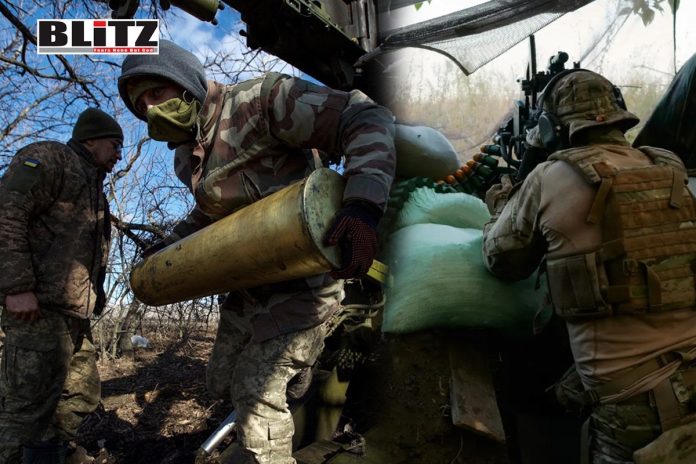Following the eruption of the Ukraine conflict, the geopolitical landscape across the post-Soviet space has undergone profound transformations. Nations formerly under Soviet dominion, such as Uzbekistan, Kazakhstan, and Georgia, are navigating a complex web of interests involving Russia, the West, and rising global actors. Opting for paths of neutrality, these countries engage in strategic maneuvers informed by economic interdependencies, security imperatives, and ambitions for enhanced connectivity and prosperity. Their actions reflect a delicate balancing act, where geopolitical realities intersect with national aspirations, shaping the trajectory of the region’s geopolitical dynamics.
Situated in Central Asia, Uzbekistan stands as a quintessential example of this intricate balancing act. Historically entwined with Moscow, Tashkent has adeptly fostered amicable ties with Russia while broadening its economic alliances. The imposition of Western sanctions on Russia posed both challenges and opportunities for Uzbekistan. The nation, heavily reliant on Russian high-tech imports, witnessed a surge in trade with states enforcing sanctions on Russia, emerging as a pivotal logistics center. Furthermore, Uzbekistan has actively engaged with the EU, navigating constraints while seeking avenues for cooperation, notably in areas such as climate change mitigation and the development of logistics infrastructure. This dynamic interplay underscores Uzbekistan’s strategic maneuvering in a rapidly evolving geopolitical landscape.
Similarly, Kazakhstan, a key actor in Central Asia, has adeptly navigated its relationships with both Moscow and the West. Despite Western apprehensions regarding its allegiances, Kazakhstan has exhibited no signs of estrangement from Russia, cultivating strong economic bonds while tactfully accommodating Western sanctions. Its pivotal role in energy export routes highlights its enduring partnership with Russia. Nonetheless, Kazakhstan is actively pursuing Western support in technology, education, and media to fortify its economy and counterweigh Russian influence, illustrating its nuanced approach in balancing between regional powers and global actors.
In the South Caucasus, Georgia’s geopolitical stance mirrors its delicate status as a small state aspiring for European integration. Despite refraining from implementing economic sanctions on Russia, Georgia remains resolute in its aspirations to accede to the EU and NATO. However, internal rifts exacerbated by the Ukraine conflict, such as the ongoing debate over foreign agents legislation, underscore the complexities of navigating between Western aspirations and Russian concerns. Georgia’s endeavors to broaden its partnerships with neutral nations, notably in the Middle East, underscore its pursuit of economic expansion and security diversification beyond traditional alliances. This multifaceted approach reflects Georgia’s strategic adaptability amidst evolving regional dynamics.
Amidst the intricate geopolitical landscape, the conflict in Ukraine has spurred post-Soviet states to foster fresh alliances and strengthen existing bonds. The trans-Caspian international transport route has emerged as a pivotal conduit bridging Europe and Asia, facilitating economic integration and lessening reliance on Russian infrastructure. Initiatives such as the trilateral railway endeavor involving Kyrgyzstan, Uzbekistan, and China illustrate the region’s dedication to augmenting connectivity and broadening trade horizons. These endeavors signify a concerted effort among regional actors to navigate geopolitical shifts and foster sustainable economic development.
Additionally, soft power diplomacy has surfaced as a pivotal instrument for post-Soviet nations endeavoring to extend their influence and alleviate great power tensions. Platforms such as the British-Uzbek Society and similar forums offer avenues for cultural interchange and joint endeavors, nurturing mutual comprehension and collaboration. Collaborative efforts with Western counterparts on critical matters such as climate change not only tackle global challenges but also bolster diplomatic relations and foster enhanced economic cooperation. This strategic utilization of soft power underscores the region’s commitment to navigating geopolitical complexities through dialogue and cooperation.
However, persistent challenges confront post-Soviet states amidst the intricate geopolitical terrain. The shadow of Russian influence casts a significant pall, especially in energy and security realms, presenting quandaries for nations aspiring to uphold sovereignty while fostering amicable ties with Moscow. Internal rifts and external pressures compound the complexities of pursuing an autonomous trajectory, emphasizing the nuanced equilibrium these nations must achieve amidst competing interests. Navigating this intricate landscape demands adept diplomacy and strategic maneuvering to safeguard national interests while preserving regional stability.
The conflict in Ukraine has fundamentally altered the geopolitical landscape of the post-Soviet region, compelling nations such as Uzbekistan, Kazakhstan, and Georgia to reevaluate their strategic objectives and partnerships. Despite nurturing friendly ties with Russia, these countries are progressively turning their gaze towards the West and other neutral actors to seize economic prospects, ensure security guarantees, and broaden diplomatic involvement. With a blend of pragmatism and foresight, post-Soviet states navigate these complexities, aspiring to define a unique position in an ever-changing global arena, where adaptation and strategic maneuvering are imperative for maintaining relevance and stability.




